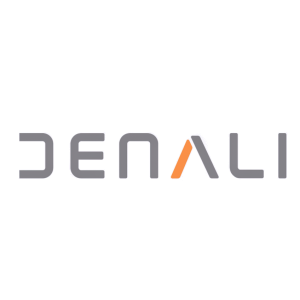Denali Therapeutics Announces Publication in Science Translational Medicine Demonstrating the Potential of the Oligonucleotide Transport Vehicle Platform to Achieve Broad Biodistribution of Antisense Oligonucleotides in the CNS and Muscle Following Intravenous Administration
Rhea-AI Summary
Denali Therapeutics (DNLI) has published groundbreaking research in Science Translational Medicine, showcasing the potential of their Oligonucleotide Transport Vehicle (OTV) platform. This innovative technology enables broad biodistribution of antisense oligonucleotides (ASOs) in the central nervous system (CNS) and muscle following intravenous administration.
The OTV platform, an extension of Denali's clinically validated Transport Vehicle (TV) technology, addresses a major challenge in oligonucleotide therapeutics: crossing the blood-brain barrier (BBB). Unlike current methods requiring invasive delivery, the OTV allows for uniform distribution throughout the brain via less invasive intravenous administration.
Key findings demonstrate the OTV's ability to provide cumulative and sustained knockdown of target gene expression across multiple CNS regions and cell types, as well as in peripheral muscle tissues. This breakthrough could significantly advance the development of treatments for neurodegenerative and lysosomal storage diseases.
Positive
- Successful demonstration of broad ASO biodistribution in CNS and muscle via intravenous administration
- Potential to replace invasive intrathecal delivery methods with less invasive intravenous administration
- Uniform distribution of ASOs throughout the brain, addressing a key challenge in CNS drug delivery
- Cumulative and sustained knockdown of target gene expression across multiple CNS regions and cell types
- Successful targeting of peripheral muscle tissues, including skeletal and cardiac muscle
- Extension of clinically validated Transport Vehicle (TV) platform to oligonucleotide delivery
Negative
- None.
News Market Reaction
On the day this news was published, DNLI declined 2.35%, reflecting a moderate negative market reaction.
Data tracked by StockTitan Argus on the day of publication.
SOUTH SAN FRANCISCO, Calif., Aug. 14, 2024 (GLOBE NEWSWIRE) -- Denali Therapeutics Inc. (Nasdaq: DNLI), a biopharmaceutical company developing a broad portfolio of product candidates engineered to cross the blood-brain barrier (BBB) for the treatment of neurodegenerative and lysosomal storage diseases, today announced publication of nonclinical data in the August 14, 2024 issue of Science Translational Medicine (link) demonstrating the ability of the Oligonucleotide Transport Vehicle (OTV) platform to achieve broad biodistribution of antisense oligonucleotides (ASOs) in the central nervous system (CNS) and skeletal and cardiac muscle following intravenous (IV) administration.
Oligonucleotides, such as ASOs, are designed to modify gene expression and hold promise as therapeutics for neurological disorders. A major challenge in their development, however, is that oligonucleotides are unable to cross the BBB on their own. Currently, oligonucleotides must be delivered directly to the CNS through invasive routes such as intrathecal delivery and still may not distribute uniformly throughout the brain where treatment is needed. Denali invented the Transport Vehicle (TV) platform to overcome the challenge of the BBB and deliver multiple types of therapeutic cargo across the BBB, including antibodies, enzymes, and other proteins. The TV platform has been clinically validated and three TV-enabled programs are currently in clinical development.
“This is the first publication of data showing that ASOs can be delivered uniformly throughout the primate CNS and to muscle via a less invasive route of intravenous administration enabled by the TV platform,” said Joseph Lewcock, Ph.D., Chief Scientific Officer of Denali. “Across modalities, enhanced brain uptake with uniform distribution throughout the CNS is a defining hallmark of the TV. Publication of our OTV research is a significant milestone supporting TV platform expansion as we advance our first two OTV programs towards the clinic for Alzheimer’s disease and Parkinson’s disease.”
In the Science Translational Medicine article, Denali scientists describe using OTV, which is an engineered TV conjugated to an ASO, for delivery of therapeutic molecules to the mouse and nonhuman primate brain. The data show that OTV can successfully cross the BBB following IV administration and provide cumulative and sustained knockdown of the ASO target gene expression across multiple CNS regions and all major cell types, including endothelial cells, neurons, astrocytes, microglia, and oligodendrocytes. Additionally, OTV enabled knockdown of the ASO target gene expression in historically difficult to target peripheral muscle tissues, including skeletal and cardiac muscle. In comparison to other clinically relevant ASO delivery platforms, including direct delivery of a non-TV-enabled ASO to the cerebrospinal fluid, systemic OTV enabled a much more uniform ASO biodistribution profile and knockdown of the target.
About Denali’s Transport Vehicle Platform
The blood-brain barrier (BBB) is essential in maintaining the brain’s microenvironment and protecting it from harmful substances and pathogens circulating in the bloodstream. Historically, the BBB has posed significant challenges to drug development for central nervous system diseases by preventing most drugs from reaching the brain in therapeutically relevant concentrations. Denali’s Transport Vehicle (TV) platform is a proprietary technology designed to effectively deliver large therapeutic molecules such as antibodies, enzymes, proteins, and oligonucleotides across the BBB after intravenous administration. The TV technology is based on engineered Fc domains that bind to specific natural transport receptors, such as transferrin receptor and CD98 heavy chain amino acid transporter, which are expressed at the BBB and deliver the TV and its therapeutic cargo to the brain through receptor-mediated transcytosis. In animal models, antibodies and enzymes engineered with the TV technology demonstrate more than 10- to 30-fold greater brain exposure than similar antibodies and enzymes without this technology. Oligonucleotides engineered with the TV technology demonstrate more than a 1,000-fold greater brain exposure in primates than systemically delivered oligonucleotides without this technology. Improved exposure and broad distribution in the brain may increase therapeutic efficacy by enabling widespread achievement of therapeutically relevant concentrations of product candidates. The TV platform has been clinically validated and three TV-enabled programs are currently in clinical development.
About Denali Therapeutics
Denali Therapeutics is a biopharmaceutical company developing a broad portfolio of product candidates engineered to cross the blood-brain barrier for neurodegenerative diseases and lysosomal storage diseases. Denali pursues new treatments by rigorously assessing genetically validated targets, engineering delivery across the blood-brain barrier, and guiding development through biomarkers that demonstrate target and pathway engagement. Denali is based in South San Francisco. For additional information, please visit www.denalitherapeutics.com.
Special Note to Reporters
More information, including a copy of the paper, can be found online at the Science Translational Medicine press package at https://www.eurekalert.org/press/medpak/.
Cautionary Note Regarding Forward-Looking Statements
This press release contains forward-looking statements within the meaning of the Private Securities Litigation Reform Act of 1995. Forward-looking statements expressed or implied in this press release include, but are not limited to, statements regarding Denali's plans, timelines, and expectations related to its OTV programs and planned clinical trials; Denali's expectations regarding the therapeutic potential of its TV platform; and statements made by Denali's Chief Scientific Officer. Actual results are subject to risks and uncertainties and may therefore differ materially from those indicated by these forward-looking statements, including due to risks related to: Denali’s dependence on successful development of its BBB platform technology and TV-enabled product candidates; Denali’s ability to conduct or complete clinical trials on expected timelines; the risk of significant adverse events, toxicities, or other undesirable side effects; the risk that results from early clinical biomarker studies will not translate to clinical benefit in late clinical studies; developments relating to Denali’s competitors and its industry; Denali’s ability to obtain, maintain, or protect intellectual property rights; and other risks and uncertainties. In light of these risks, uncertainties, and assumptions, the forward-looking statements in this press release are inherently uncertain and may not occur, and actual results could differ materially and adversely from those anticipated or implied in the forward-looking statements. Accordingly, you should not rely upon forward-looking statements as predictions of future events. Information regarding additional risks and uncertainties may be found in Denali’s Annual and Quarterly Reports on Forms 10-K and 10-Q filed with the Securities and Exchange Commission (SEC) on February 28, 2024 and August 1, 2024, respectively, and Denali’s future reports to be filed with the SEC. Denali does not undertake any obligation to update or revise any forward-looking statements, to conform these statements to actual results, or to make changes in Denali’s expectations, except as required by law.
Investor and Media Contact:
Laura Hansen, Ph.D.
Vice President, Investor Relations
(650) 452-2747
hansen@dnli.com








